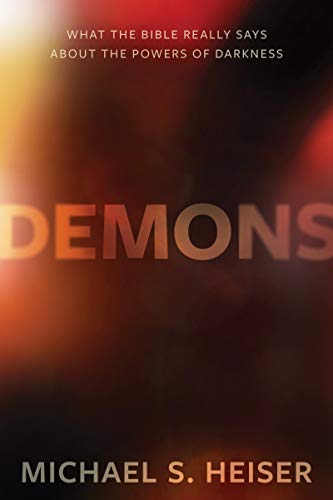BEN: Your qualifications in the demon possession discussion are helpful, especially the evidence that ancients could distinguish between diseases or conditions caused by natural forces, and the effects of demon possession, which rules out the prevalent assumption of many that ‘bless their hearts, they just didn’t know about modern medicine and so they attributed all those problems to evil supernatural causes’. And I certainly agree with you that the NT does not suggest Christians can be possessed by demons— pestered, tempted, bother, bewildered yes, but possessed no, so Christians don’t need exorcisms. ‘Greater is he who is in you than….’ What do you see as the proper implications of this kind of approach to demon possession? For my part, I tell pastors, first rule out all possible natural causes before you leap to the conclusion ‘the devil made me do it’. I see no basis in the NT for people running around saying a demon gave me that cold or cancer etc. I do see your point that some ancient texts in the NT are hard to parse, and sometimes the ancients likely attributed a supernatural cause to an illness when it was not so. There is simply too much in the NT where the followers of Jesus are held accountable for their own decisions and behaviors and the assumption behind that is they were not compelled by the powers of darkness to do such things. Nor is it helpful when Christians demonize people they may strongly disagree with, even fellow Christians. We have recently had a major dissertation here that deals with all these matters, and in particular the evidence from Africa and elsewhere of the reality of demon possession, and some of it is quite compelling.
MICHAEL: I agree with your strategy and pattern—to rule out natural causes first. That just makes sense and prevents a spectrum of spiritual abuse. Running down all those paths and eliminating them systematically can help reduce the problem to something unnatural and expose features of the oppression or possession that simply cannot be explained any other way.
BEN: Perhaps the most important point you make in the demon possession chapter is that Jesus is unlike other exorcists in that he performs his service on the basis of his own authority and power, and does need to invoke some other source or power, unlike the disciples in Acts who perform these things ‘in/by the name of Jesus’.
MICHAEL: Agreed again, and I think the observation is important, given the references in the gospels and Acts to others besides Jesus and those whom he empowers in that way (e.g., Matt 12:24-28; Luke 11:14-23; Acts 19:13-16). Those references produce the obvious question, “What was the difference?” Once the difference is discerned (Jesus acting on his own authority) that’s a significant theological statement.












